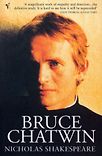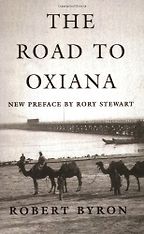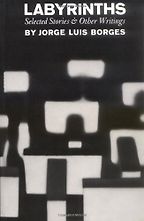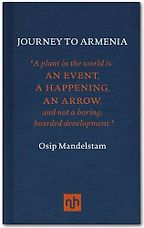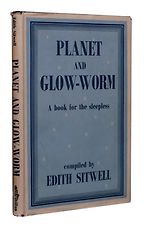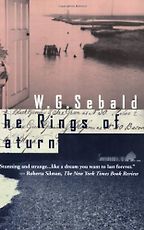Your own biography of Chatwin paints a compelling portrait of a writer who lived a colourful life. What is it about Bruce Chatwin that interests you, and so many other readers?
He was a precursor of the Internet, a connective super highway without boundaries, and with instant access to different cultures. He was a storyteller of bracing prose, at once glass-clear and dense, who offered a brand new way of representing travelling. And he held out in his six books the possibility of something wonderful and unifying, inundating us with information but also with the promise that we will one day get to the root of it. As his friend Robyn Davidson said: “He posed questions that we all want answered and perhaps gave the illusion that they were answerable.”
What from Chatwin’s personal life can help us to understand his work? Or was the Chatwin he projects in his books very different to who he was in reality?
The Bruce Chatwin of the books is an all-knowing action-man and laconic observer, whose longest utterance tends to be “I see”. But Chatwin himself was a hopelessly impractical chatterbox who could not stop talking and never did the washing-up.
Childhood influences were strong, as he suggests in The Songlines. His father was absent at sea during the war, his nervous mother shunted him from aunt to aunt, and after the war he was brought up with his brother Hugh on a small-holding near Birmingham. He did not come from a privileged background, as many suppose, but from a family with mercantile roots in Sheffield and Birmingham, underpinned by solid middle-class values.
In adult life he no doubt felt like an outsider at times. He was bisexual in a socially conservative era, notwithstanding his other eccentricities.
Chatwin was a great writer, but the restlessness that drove him is less easy to pin down. Readers sense a tension behind the work. While the prose is clear, vivid and confident, the author seems opaque, unmoored and capable of whirring off in all directions. He copied into one of his signature Moleskine notebooks this telling line from Montaigne: “I ordinarily reply to those who ask me the reason for my travels, that I know well what I am fleeing from, but not what I am looking for.”
As to the motivations for his restlessness, I have not yet found a more convincing explanation than this, by the Vietnamese writer Nguyen Qui Duc: “Nomads in the old days travelled around looking for food, for shelter, for water; modern day nomads, we travel around looking for ourselves.” Of course, Chatwin’s sexuality is an important component of the identity he was seeking. He grew up bisexual in a conventional middle-class home, and was 27 before homosexuality became legal. He was married for 23 years, and spent much of his life running away from his wife – and running back to her.
Travel literature was ostensibly Chatwin’s genre, but his books are more than that, often merging a more artistic perspective with non-fiction. Indeed, one criticism is that he takes too many liberties with the truth. Isn’t that problematic when he’s on the non-fiction shelf?
Chatwin was not a “whopper merchant” as some of his critics would have him. Paradoxically, he did not have a fictional gift. His American editor Elisabeth Sifton put it well: “Bruce was an artist not a liar.” He had the imagination to tell stories, to connect them, to enlarge, colour and improve them, but not to invent. “His art of arranging, composing and enspiriting the material,” Sifton continues, “was, though, more like a novelist’s than a journalist’s.” In following his trail, I found errors but strikingly few examples of mere invention, fewer than in the case of one or two of his disciples.
As for those non-fiction and fiction shelves, one of Chatwin’s achievements was to trample down the fence-posts imposed by publishers, booksellers and critics. He was furious when The Songlines was nominated for the Thomas Cook Travel Award, and demanded that his publisher withdraw it. “The journey it describes is an invented journey, it is not a travel book in the generally accepted sense.” Indeed, The Songlines was published as a novel. But even that was a misnomer.
He was a storyteller first. “I’ve always loved telling stories,” he told Colin Thubron. “It’s telling stories for what it’s worth. Everyone says: ‘Are you writing a novel?’ No, I’m writing a story and I do rather insist that things must be called stories. That seems to me to be what they are. I don’t quite know the meaning of the word novel.” And in telling stories, he didn’t care so much if they were true or false, only if they were good. For Chatwin, a good story was also in a real sense a true story. I like to say that he didn’t tell a half-truth, but a truth and a half.
Is literary travel writing a genre with its own rules, separate to memoir? And how has the genre changed since the “gentleman traveller” style of Robert Byron or Paddy Leigh-Fermor?
Crikey. I’m not sure I’m competent to answer this one, other than to repeat what Stephen Spender told me: “Two hundred years ago, Bruce might have conquered a large slice of Empire and he probably would have died early and been buried in Afghanistan. He didn’t like England, but that is very English too. The British Empire, after all, was based on people trying to get away from Britain.”
Five Books interviews are expensive to produce. If you're enjoying this interview, please support us by donating a small amount.
What perhaps unites Byron, Leigh-Fermor and Chatwin is their sense of entitlement – which is possibly a hangover of the Victorian colonial explorer. Like them, Chatwin was imbued with the confidence that he would be welcome anywhere. According to David Plante: “His attitude seemed to be: ‘Except for the fact it’s too late, I might have run the Empire. But I certainly have a right to it in a retrospective way because I know more about it than anyone else.’ With Bruce, knowledge and fantasy became power.”
That is a long way of saying he’s a very English sort of traveller and travel writer. You can’t imagine him as a Frenchman or an Italian, for all his love of French and Italian literature.
Let’s begin to go through the books you’ve selected as Chatwin’s biggest influences, beginning with Robert Byron’s The Road to Oxiana.
Byron was Chatwin’s first conscious model. Like Chatwin, he was educated at Marlborough, he was gay, and he was an aesthete who privileged art over people. It was in Byron’s footsteps that Chatwin travelled first to Persia and Afghanistan, the countries that inspired The Road to Oxiana. The book is a candid account of a journey made in 1933 in search of Seljuk tombs – tall, cylindrical mausolea whose existence was known to Byron only through some “inadequate photographs”. Chatwin put Byron’s descriptions of Islamic architecture “at least in the front rank as Ruskin” and raised the book “to the status of ‘sacred text’, and thus beyond criticism … it was my Bible.” Byron’s previous book, The Station, was about his visit to Mount Athos, where Chatwin would discover God at end of his life, and convert to Orthodoxy.
Next on your list of books that influenced Chatwin is Labyrinths, by Jorges Luis Borges.
It is easily forgotten how much of a writer’s life like Chatwin’s is spent not on the hoof, but on your backside alone in a library. And no writer embodied libraries more than the immobile, blind Argentine, Jorge Luis Borges. Invited to appear on a chat show in 1983 with “the Magus of Buenos Aires”, Chatwin extolled: “You can’t go anywhere without packing a Borges, it’s like packing your toothbrush.” Borges murmured in response: “How unhygienic.”
Chatwin responded to the compression of Borges’ prose, his range of exotic references, his unfashionable mentors (Chesterton, Kipling), and his notion of a cabbalistic answer as a key to unlock the universe. He even wrote a short story in imitation of Borges, and during his final illness he had this vision: “I saw green-capped schoolboys leaving school, an infinite library of books which turned into a library of primroses and a troupe of glass horses which galloped off in a shatter. It was like something from Borges’ El Aleph.”
Journey to Armenia by Osip Mandelstam, is a hauntingly introspective travelogue about a trip to Armenia in the 1930s.
All Chatwin’s hallmarks are to be found in the prose of this Russian poet, “the most important writer to be snuffed out by Stalin.” The journey to somewhere remote. The style – dense, yet glass-like. The brevity. Chatwin steeped himself in the Journey to Armenia and would read it aloud to the Sunday Times art department when he worked there, calling Mandlestam “the shaman and seer of his time” and “one of my gods.”
How does Planet and Glow-worm, Edith Sitwell’s 1944 “Book for the Sleepless”, fit into Chatwin’s ouevre?
This anthology, arranged as a common-place book, was recommended to Bruce at his public school by an old lady in Marlborough’s White Horse Bookshop. It excited in him the fragmentary approach of the scrap-merchant, and he would base The Songlines on its structure, reworking his fictionalised journey in Australia into a collage of quotation and diary.
Another influence was Cyril Connolly’s anthology-cum-journal The Unquiet Grave, which Chatwin described as “a book I return to again, so brilliant yet so terribly indicative of the pitfalls of English literary life.” He was particularly taken by Connolly’s cautionary advice to aspiring writers, “that the true function of the writer is to produce a masterpiece and that no other task is of any consequence … All excursions into journalism, broadcasting, propaganda and writing of films, however grandiose, are doomed to disappointment.”
Finally, The Rings of Saturn, a 1995 novel by WG Sebald about one man’s walking tour of Suffolk but with various historical tangents.
Writing about Kafka, Borges observed that “each writer creates his precursors”. Of all those liberated by Chatwin’s trampling of fence-posts, and empowered by his example of zig-zagging through time and space, none stands higher than WG Sebald, whose last piece of writing before his own untimely death was actually about Chatwin. One can recognise Sebald’s idiosyncrasies in Chatwin’s earlier work, and yet, to paraphrase Borges: “if Chatwin had not written we would not perceive it; that is to say, it would not exist.”
Tell us about the circumstances of Chatwin’s death, when he wasn’t yet fifty.
He died young, but not as young as most people think. At 48, he had outlived many of his influences: Robert Louis Stevenson, TE Lawrence, Anton Chekhov, Robert Byron, Arthur Rimbaud. He died of AIDS – one of the first well-known figures in England to do so – but denied in public that he had it. His denial bred a sense that if he lied about his life, he must have lied about his work. Some readers have taken this as a cue to pass judgement on his books – or else not to bother with them.
Get the weekly Five Books newsletter
It deserves repeating that Chatwin’s medical reports confirm that he said nothing he was not given leave to believe by his doctors. At the time he fell ill – the mid-1980s – all sufferers of AIDS had HIV, but it was not known for certain whether every person infected with HIV automatically contracted AIDS. The disease, which had appeared in New York in 1981, was relatively new to England and still “mysterious and shameful” in the words of the gay writer Edmund White, one of a number of men who had sex with Chatwin. Whatever Chatwin’s private fears during this period of profound public anxiety, it is unfair to judge him for any pronouncements that he made once his brain had been poisoned. By the time his HIV had developed into full-blown AIDS, he was much like his description of Rimbaud, who died in a Marseilles hospital in 1891, “mumbling in his delirium a stream of poetic images which his sister Isabelle, though she had paper and pencil to hand, did not think to write down.”
Is there any contemporary writing that holds a candle to him, or is he inimitable?
Like Hemingway, another of his influences, Bruce Chatwin has spawned a lot of imitators, but like Hemingway he’s a one-off.
Five Books aims to keep its book recommendations and interviews up to date. If you are the interviewee and would like to update your choice of books (or even just what you say about them) please email us at [email protected]

